09:47
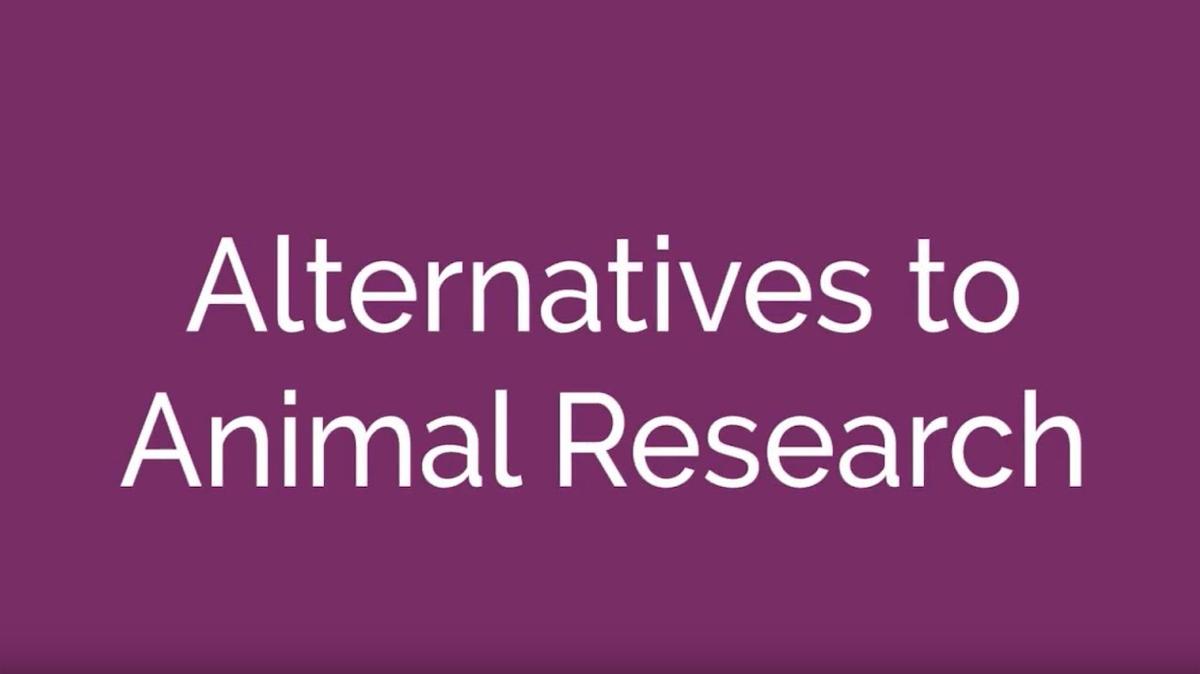
Reviews the 3Rs – the Replacement, Reduction and Refinement of laboratory animal use. Key replacement examples include the use of structure-activity relationships and expert systems, cell cultures, the ‘human on a chip’, gene chips, and strategies to increase the predictivity and safety of human clinical trials. Key reduction examples include statistical calculation of sample sizes and international harmonisation of test guidelines. Key refinement examples include the use of pain-killers, anaesthetics, and environmental enrichment.
09:56
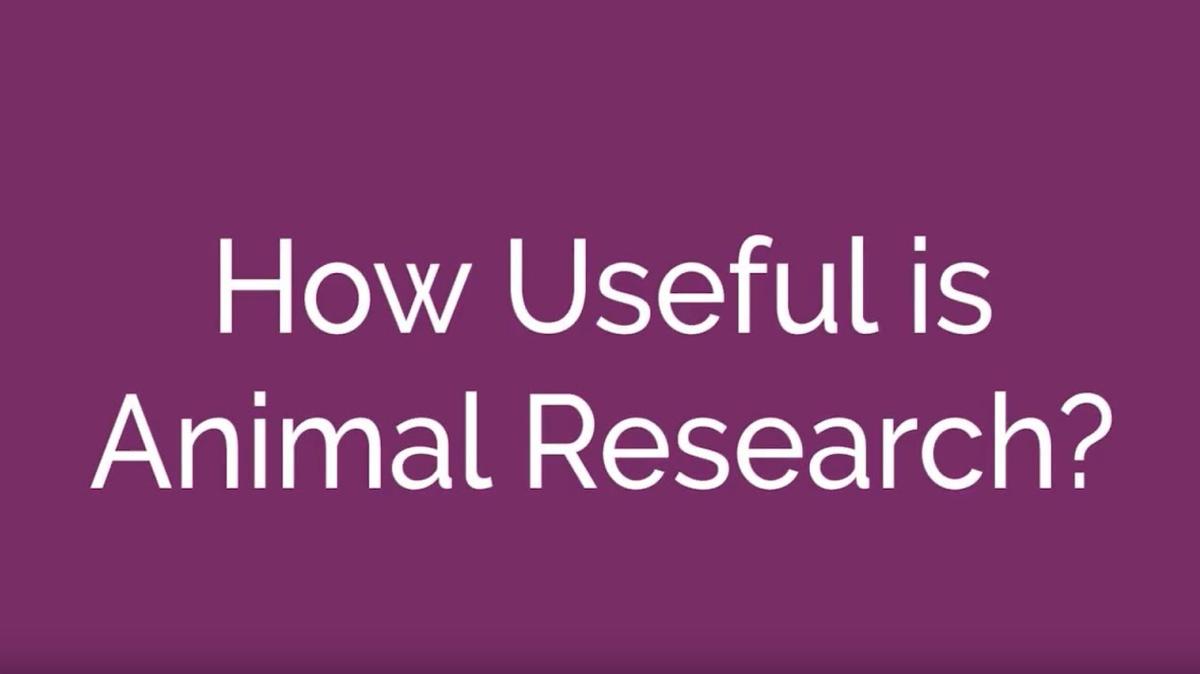
Systematic reviews have clearly demonstrated the limited human clinical and toxicological utility of animal experiments. This presentation briefly summarises this evidence, and reviews the reasons for the poor human predictivity of animal models. These include inherent differences between humans and animals, further exacerbated by the ways in which we use them – particularly, the stressful laboratory environments and procedures we subject animals to. Scientific flaws and sources of unconscious bias are widespread – undermining study reliability and reproducibility. Finally, publication bias...
09:57

Describes the use of animals within life and health sciences education, humane alternatives, and evidence concerning the educational effectiveness of humane teaching methods compared to harmful animal use.
05:17
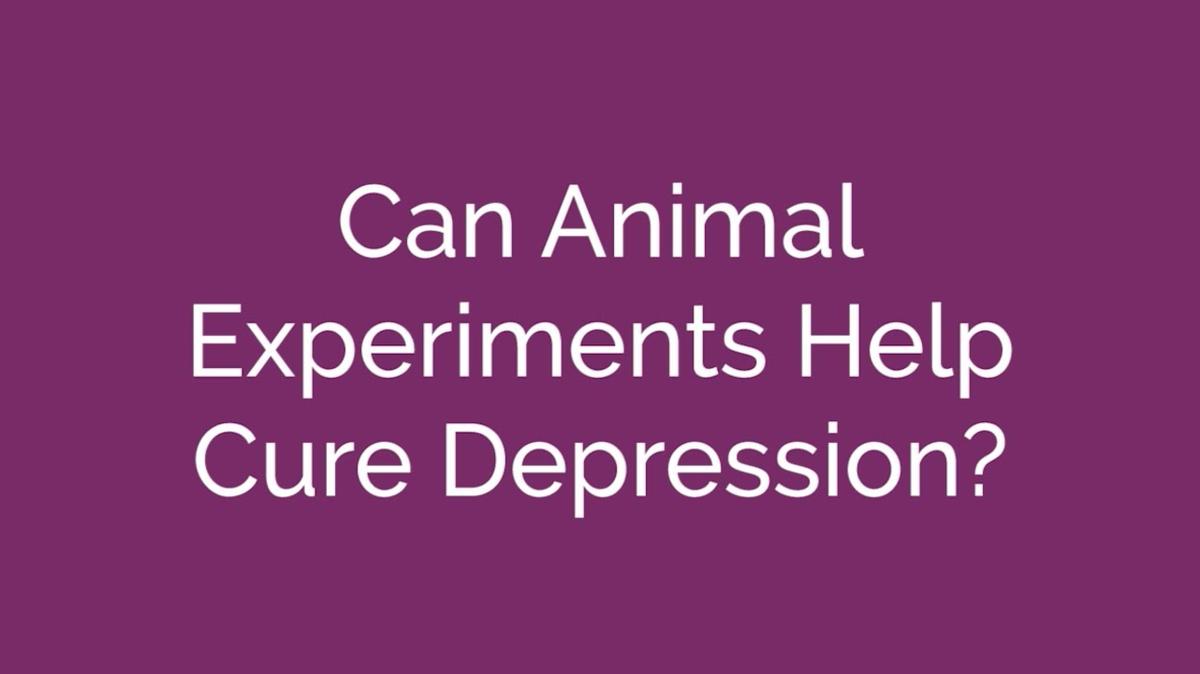
Can animal experiments help cure depression? Unfortunately not, because animal research contributes little to human medical developments in this field. Here, we summarise our studies of the contributions of different forms of research to advances in depression understanding and treatment. Our full papers may be found at https://rebrand.ly/2020/MDD-Front-Psych, https://rebrand.ly/2020/MDD-PLoS-ONE, https://rebrand.ly/2019/MDD and also at https://AndrewKnight.info.
05:11

Harmful animal use in education and training remains widespread among life and health sciences disciplines. Humane teaching alternatives include ethically-sourced cadavers, models, mannequins, mechanical simulators, videos, computer and virtual reality simulations, and supervised clinical and surgical experiences. In this study we assessed and summarized studies of their educational effectiveness, through the process of a systematic review. We found 50 published educational studies of students, within which humane teaching methods produced learning outcomes superior (30%), equivalent (60%),...
04:44

Should we experiment on non-human primates (NHPs)? A short introduction to the harms and benefits of such research, and a call for greater protection of NHPs. Introduces our article: Carvalho, C., Gaspar, A., Knight, A., and Vicente, L. (2019). Ethical and scientific pitfalls concerning laboratory research with non-human primates, and possible solutions. Animals, 9(1), 12. https://www.mdpi.com/2076-2615/9/1/12 (also at https://AndrewKnight.info).
02:58

A Clinical Skills Laboratory (CSL) is important for teaching surgical and medical skills to veterinary and medical students. Our recent article at https://AndrewKnight.info) and summarised here, describes steps and considerations important during the establishment of a successful CSL, based on our experiences in establishing and directing the state of the art CSL at Ross University School of Veterinary Medicine.
01:05:44
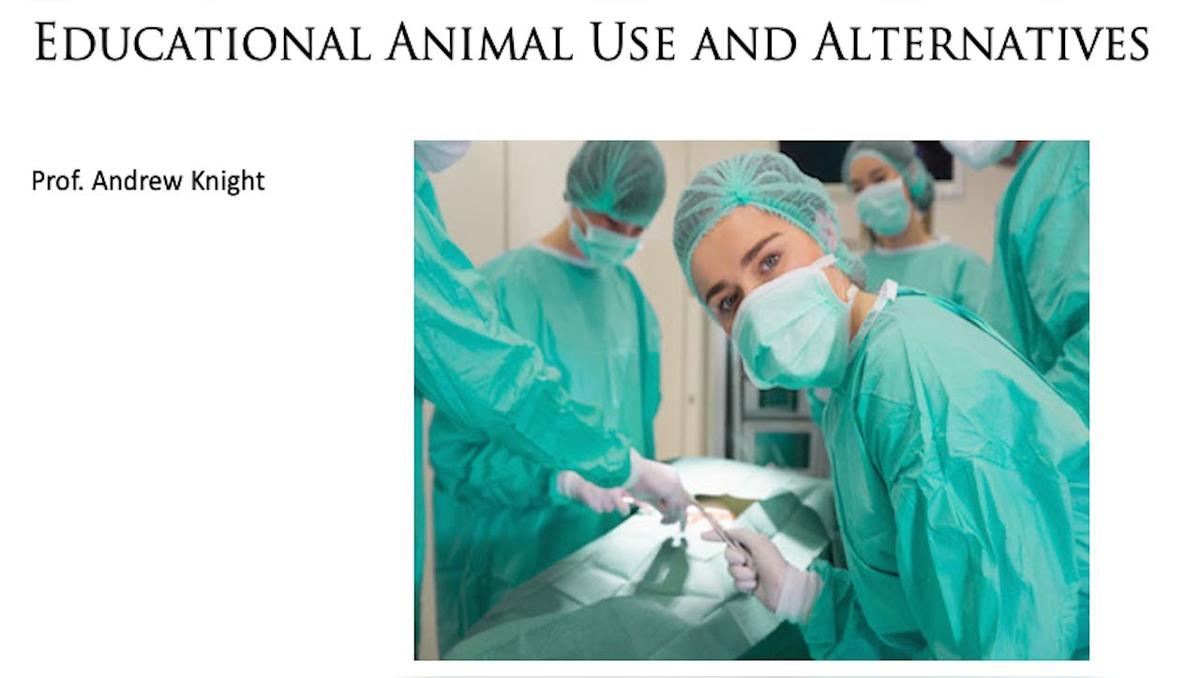
Animal use resulting in harm or death has historically played an integral role in life and health sciences education, in disciplines such as surgery, physiology, biochemistry, anatomy, pharmacology, and parasitology. However, the last few decades have seen a rapid increase in the availability of non-harmful alternatives, such as computer simulations, high quality videos, ‘ethically-sourced cadavers’ such as those from animals euthanized for medical reasons, preserved specimens, models and surgical simulators, non-invasive self-experimentation and supervised clinical experiences. Yet student...
50:09
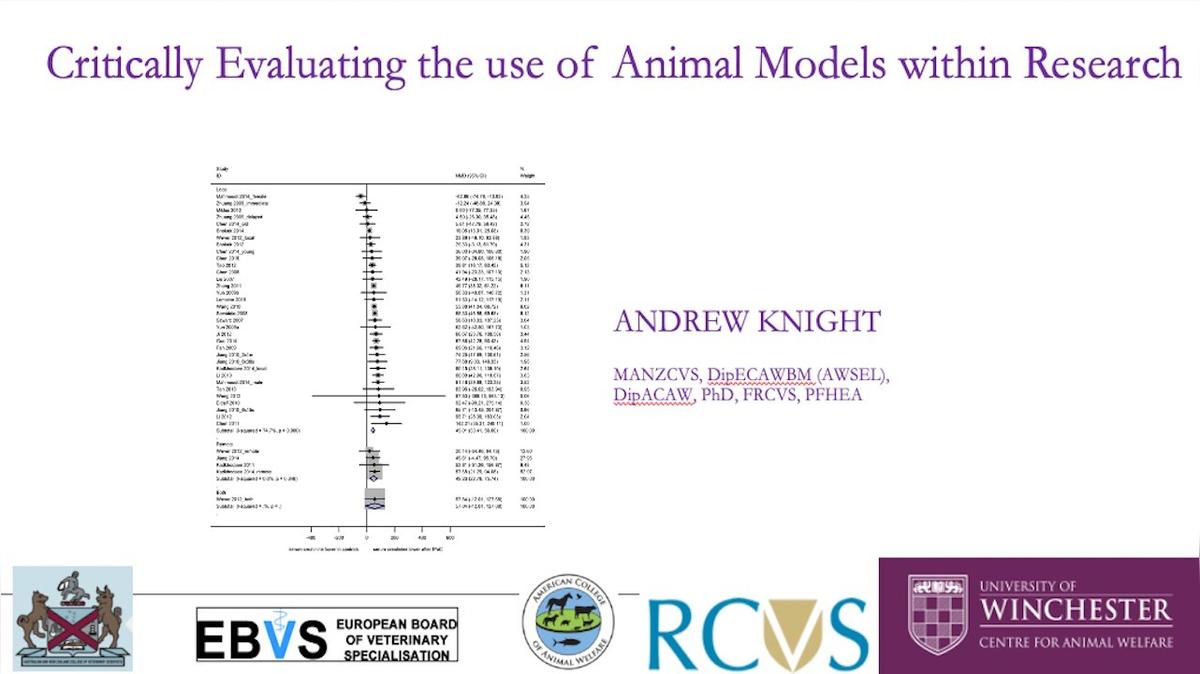
Systematic reviews have clearly demonstrated the limited human clinical and toxicological utility of animal experiments. This 50 min. presentation summarises this evidence, and reviews the reasons for the poor human predictivity of animal models. These include inherent differences between humans and animals, further exacerbated by the ways in which we use them – particularly, the stressful laboratory environments and procedures we subject animals to. Scientific flaws and sources of unconscious bias are widespread – undermining study reliability and reproducibility. Finally, publication bias...
06:03

Thousands of alternatives to harmful animal use are now available. Why, then, are well over 100,000 animals used annually for educational purposes, within the EU alone? To find the answers, we studied the publicly available summaries of scientific and educational animal use in EU member states. The most common reasons provided by educators for not using humane alternatives, were: 1) the perceived ‘necessity’ of using a living animal for ‘proper’ learning, and 2) a belief that alternative were not adequate. However, these personal beliefs of some educators, conflict with the best available e...
26:15

Aula "Uso de animais na educação e alternativas" (Educacional animal use
and alternatives) com o professor Andrew Knight
Legenda: Caio Licínio Vasconcelos Pantarotto
Andrew Knight é Médico-veterinário, especialista em ciência do bem-estar animal, ética e direito. Professor de bem-estar e ética animal na University of Winchester, Reino Unido. Professor adjunto na School of Environment and Science at Griffith University, da Griffith University, Queensland. Membro do Royal College of Veterinary Surgeons e European Board of Veterinary Specialisation. Diretor e fundador do Centre for Animal Wel...
01:07:30

Използването на животни е било неразделна част от образованието по дисциплини като хирургия, физиология, биохимия, анатомия, фармакология и паразитология. През последните няколко десетилетия обаче се наблюдава бързо нарастване на наличието на безвредни алтернативи, за които проф. Найт детайлно ще сподели на своята лекция. В презентацията освен своя опит, той ще илюстрира ползите от използване на алтернативи, както и какво показват многобройните проучвания за ефикасността им при приложението им за образователни цели.
20 – 21 октомври 2023
зала „2020 Event Space“, София